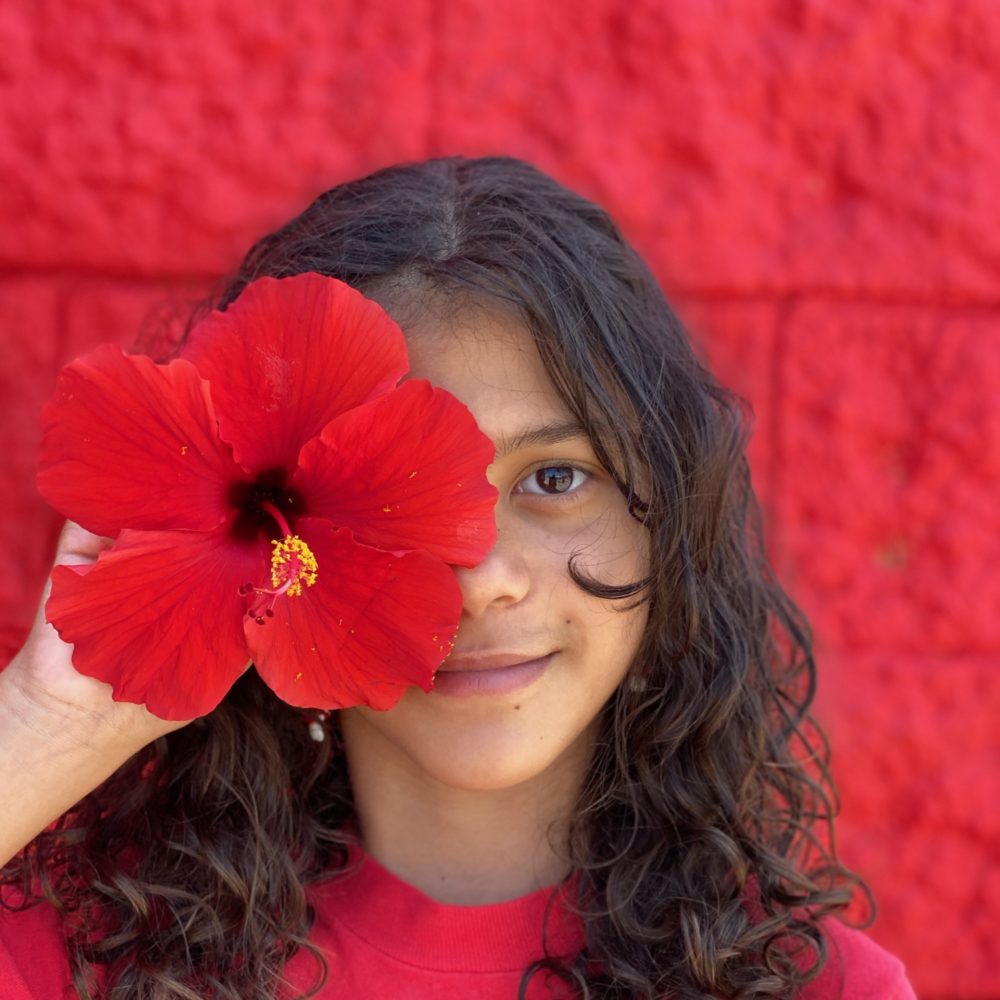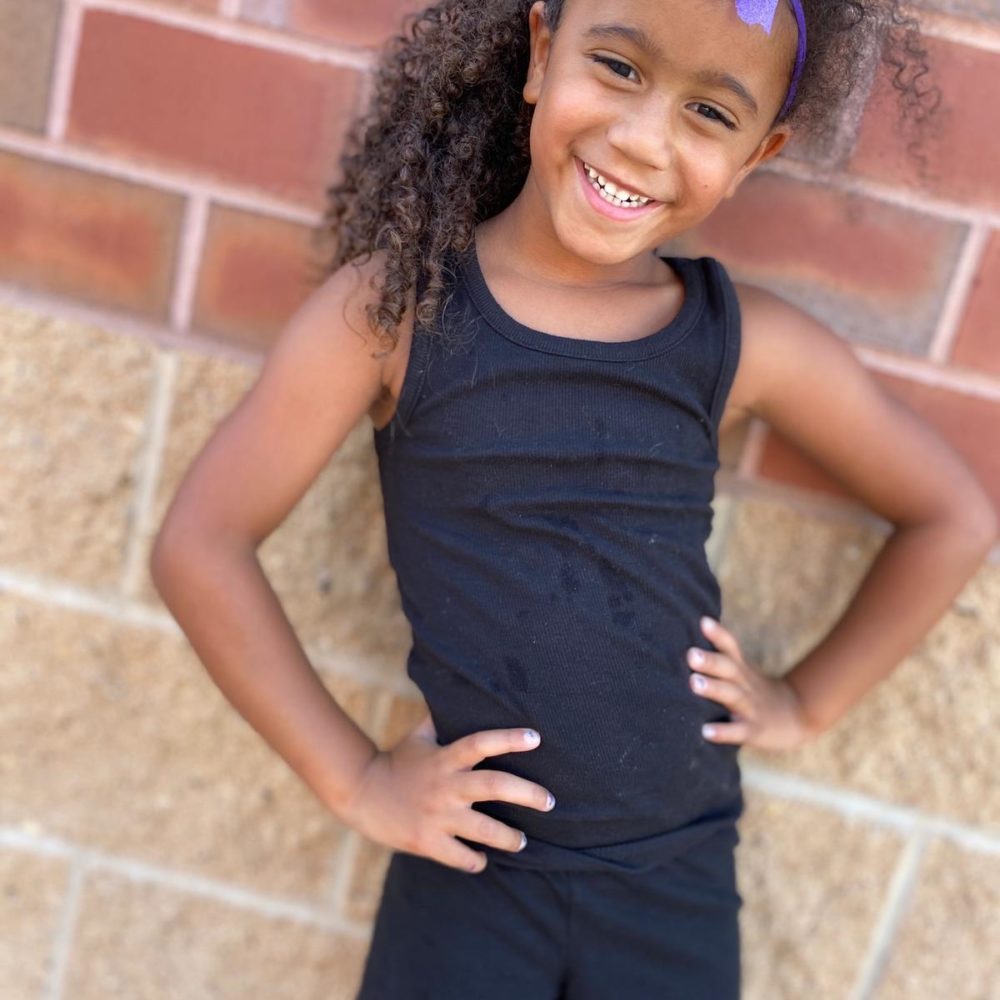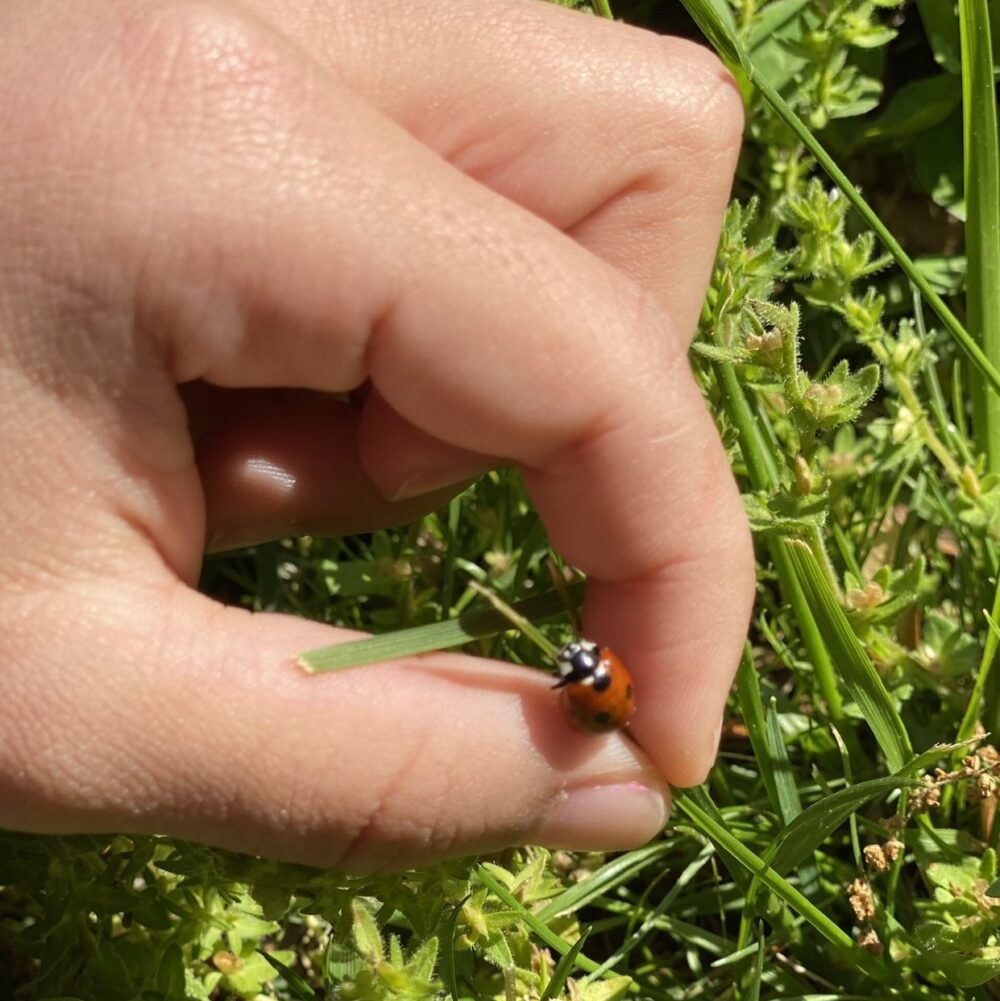WHY PHARRELL WILLIAMS
The world knows Pharrell’s genius from his arts but I got to know him as a person. It feels like I’ve known Pharrell for decades. We’ve really known each other maybe five or six years, but he is a familiar person in my soul.
When I met Pharrell for the first time, we were at a retirement party for a mutual friend. Someone had said to me, “Pharrell wants to meet you because he’s interested in education.” I didn’t know Pharrell—I knew everybody knows Pharrell and I knew his work and I was a fan, but I had been very circumspect around celebrities. I’m suspicious of celebrities who want to dabble in education and things around the poor because their lives are so full with their own work.
Pharrell said to me that he had a vision in his own community that he felt was going to be similar to the vision I had in Harlem. I said that I would see if I would help him if he agreed to do two things. (I didn’t say I definitely would help him as my time is precious, and I’m older, and I use it sparingly because of the many different pressures of getting this work done.) The first thing was that he had to come to the Harlem Children’s Zone and see for himself, because as much as he thought he understood what we’re doing with these poor children and families, until you get there and see it and feel it, nobody really understands. The second was that he had to take a picture with me so I can show my son that I was with Pharrell Williams.
After that conversation, I waited to see whether or not he was going to follow up. He did. He came. He spent the day with us. I could see in his eyes and I could hear in his voice the impact that that visit had on him. There were children in Virginia Beach and families in Norfolk that he just knew this work would be the answer for.
Right then and there we started communicating on a different level, and it’s kind of mystical—I don’t want to get too far out there—but I understood him and he understood me. Both of us decided we had to go on this mission, which was to try to help him re-create, in communities that he came from, an experience that would end generational poverty. So that’s what brought us together.
The fact that he has himself decided, quietly and without fanfare, that he is going to help create this opportunity in these communities in Virginia is something that I am struck with.
Growing up in the South Bronx, there was always a very high bar for friendship. The assumption was that, in the inner city, there would be times in your lives where folks might jump you, that you might get attacked. Your true friends were the ones who would be there and who wouldn’t hesitate to get your back. This was a real ’60’s street thing, but I just have very few friends because I find that very few people I believe have the kind of commitment that they would watch my back. When I was thirteen or fourteen that meant some potential street fight, but today it’s really about all the poor children in this country and their families.
Part of what has disillusioned me in the work that I have done is how hard it is for people to recognize that there’s a whole group of families in this country who have systematically and for literally hundreds of years been discriminated against—been denied equal access, equal rights under the law, the ability to hold businesses, buy resources and capital, buy homes—and the end result of these decades of accumulated discriminatory practices is that they haven’t been given a fair chance. They tend to be Black and Brown folks, but there are other folks who fit into that description also.
My life’s work has been both trying to aid those people and trying to make America aware that it is not living up to its founding principles, the principles you find in the Declaration of Independence and in the Bill of Rights. But I’m one voice in the wilderness talking about poverty that only educators know, while Pharrell has a reach that’s national, international, worldwide.
He has been back to Harlem four or five other times; he’s met with the mayor of Virginia Beach and the Mayor of Norfolk; he’s met with the wife of the governor of Virginia; I’ve been to Virginia Beach several times, talking with folks and trying to work on a vision. The fact that he has himself decided, quietly and without fanfare, that he is going to help create this opportunity in these communities in Virginia is something that I am struck with.
Pharrell has walked in many circles—finance and business and entertainment, education—and he is connecting those worlds in ways that other people are unable to do.
Pharrell has this ability to be great doing many things—not just musical talent, but the business, the politics, everything underneath and behind the dreams. I am in awe of his intellect, his business acumen, his relationship with our communities—but also with the world community. The Black community loves him because he is Black, but the world loves him because he is Black, and that comes through.
This is what I’ve begun to understand about Pharrell: I saw the 10-year-olds as excited as the 50-year-olds. Usually, you’re in one space in the entertainment business. He has a following that transcends age and race and sex and color—all of those things, which makes him unique.
I tend to guard my children from celebrities. I worry about those folks when it comes to drugs and random sex and violence, which so much of the arts are associated with. There are not a lot of folks who I will introduce to my kids—we’ve got 28,000 children and family members with our Harlem Children’s Zone. But everything that I have seen about Pharrell I have just found in sync with my values and with the values of the children and families I am trying to inculcate.
I’ve seen him with his family; I’ve talked with him about our children; I’ve observed him interacting with folks who, soon as they see him in Harlem, go “oh my God.” His humbleness is real. Every time I’ve asked him to do something—whether it’s a graduation speech or to send some words of comfort or to come speak to a group of our kids—he has done so. My respect for him has grown each time I’ve seen the genuine relationship he endears with these people. They know he’s talking from his soul when he talks to them—it’s not preprogrammed or an act or just something he’s saying. His concern for them comes through.
But that’s only half of it. He’s certainly one of the smartest people that I’ve met. He’s keen and he’s a serious philanthropist. He thinks outside the box, and he moves in circles that leave me stunned. This guy is everywhere, and I never know what he is working on. And all of it is leading toward making this a better country, making this a more equitable country.
This is not about self-aggrandizement or self-promotion. He is quietly moving levers that are having a real impact in lots of different ways in this country, which is unique to him. There are a lot of folks who are known because they’re in the business and they’ve done some things around music or art, but Pharrell has walked in many circles—finance and business and entertainment, education—and he is connecting those worlds in ways that other people are unable to do.
WHY NOW
What is happening to poor children and their families in this country is that they are experiencing toxic stress. Toxic stress stays with you, it goes to sleep with you, it wakes you up in the morning, it wakes you up in the middle of the night. It comes on sometimes after breakfast, before lunch. This is what happens when you fear you’re going to lose your apartment, when you fear that you’re not going to find a job, when you fear that your child might get murdered because he’s fourteen and he’s out with his friends. Everybody growing up in poverty knows that sense of dread that is always around.
What COVID-19 has done is exacerbated all of that. It has made all of us feel. Forget whether you’re poor—we’re all worried right now about our loved ones and about ourselves. But those of us with resources can create an environment where we feel, Okay, I think I’m good. I can stay here. No one’s around me. I’ve got my environment under control. I put on my mask when I go out. I think I’m good.
But with so many of our families, they have to go take that bus, they have to get on that train, they have to go work in that store, their children are somewhere and they don’t know where. There’s no place that they believe they can find safety. The accumulated impact of that kind of stress, which comes alive because all of us know people who have died, all of us know people who are sick, all of us know people who have lost their jobs, all of us know people who are terrified about being evicted. The accumulation, month after month, that this has gone on and is still going on and is likely to go on for another year, is going to cause a great mental health crisis in our country.
A term that you know is Post-Traumatic Stress Disorder. I didn’t understand PTSD until after the War in Vietnam when they began to write about the soldiers coming home from war, and they had these debilitating illnesses: depression, alcoholism, substance abuse, child abuse, domestic abuse. Something happened to them when they went to war, when they went to the front. But imagine if there is no front—if you live like that all the time. You can’t come back home because home is where the danger is. What does that do to a person? Now we know a lot of the health discrepancies we see in people of color are based on the stress that they have live with, this toxic stress, their entire life, stress that goes back to their grandparents, to their great grand-parents.
We need a scalable way to begin to heal our children. And I feel like the work that Pharrell and I are doing together is a vaccine.
So right now COVID-19 is doing this to us all, but the poorest of us are going to suffer the most. COVID-19 has highlighted all of the challenges that are faced by our communities. It’s not just comorbidities—folks who have high blood pressure or heart disease or diabetes and families who haven’t had the option of good healthcare and good nutrition. It has also highlighted the lack of economic opportunities—families who, because of COVID-19, are not able to get the higher quality jobs that allow them to work from home. It showed what happens when families are crammed together because they can’t afford to live in places where you can socially isolate folks who are sick.
Over and over, kids are in schools which, coming out of the pandemic, are going to be devastated because those children aren’t learning. Wealthy kids are going to be able to take this time to continue their education, but poor kids will not. So COVID-19 highlights why you have to tackle these issues at a community-wide level. Because simply doing one thing is not going to be sufficient to turn this all around. We need a scalable way to begin to heal our children.
Right now, this country is in a desperate search for a vaccine, literally spending billions of dollars trying to figure out how to get a vaccine to keep people safe. I feel like the work that Pharrell and I are doing together is a vaccine, is a way of preventing children from falling into the problems of school dropouts and gangs and teen pregnancy and mental health issues and all the other things that interact and plague our communities. This is the time to actually bring more awareness to the fact that there are answers. Although slogans are great, this is not “Defund the police”—that’s a great slogan—this is “We need to have really significant investments in these communities to make sure these children get the kind of education and social services they need to be able to live the American dream.”
So I think that if there was a moment to stand up and say, “Hey guys, give us some answers,” this is it.
WHY YELLOW
The thing that separates YELLOW from other folks who are trying to innovate in education right now is that at its core there’s a deep belief in not just the talent and the ability of young people, but in the debt owed to this group because of what’s historically been denied them. YELLOW is also separated by its sense of urgency. While some folks are trying to figure out solutions for a wider group of folk, my interest is in the poorest ones—the ones who are the least able to fend for themselves—and that’s what fuels Pharrell. We think there’s urgent need, we think the opportunities have to be given to the most at-risk youth, and we think in terms of the end values—being with the children and the families in a way that puts their success at the pinnacle of the effort so there can be no doubt that it will be successful. It is our job to make sure that it is successful.
Because he’s lived this experience, I didn’t ever have to explain to Pharrell why this approach. The comprehensive cradle-to-career approach, we at the Harlem Children’s Zone believe, is the best answer we have to dealing with generational poverty in the United States today. The data is clear: none of the individual strategies—early childhood support or gang prevention or teenage pregnancy prevention—can work at scale. They can all save individual children and families, but they can’t save families by the thousands and the hundreds of thousands and then millions. Rebuilding all the supports of community and working with children from cradle to career is the only way to get the job done.
This is one of the sad realities of people of color in this country: it isn’t that there was benign neglect—that they simply ignored us—it is that there was an intentional strategy to undermine African American and LatinX children and families in ways that would destroy their sense of accomplishment, their ability to believe in their own intellectual prowess, their willingness to work and do things that they were told they could not do. What Pharrell is going to be able to do that very few people in this country can do is to begin to erase some of that damage.
I’ll give you one example: the movie Hidden Figures. It’s about these African American women who were so good at math that they were called computers, and they were the reason that the United States was able to put a man into orbit. This happened in the ’60’s, when I was a teenager. How could I be 68 years old and have no idea that the only reason we were able to get into space was because of African American women? Do you know what that would’ve done for all those little Black girls—and all of us—growing up, to say, “We’re so important that the country couldn’t function without us”?
My sense is that the ability to liberate our children from all of those false beliefs and false teachings will open up their real potential and possibilities.
There’s a thousand stories like that that exist, where the truth has been hidden, and the opposite tale has taken hold. So women have been told, “You’re not good at math. You’re not good at science. There’s no history that you’ve got those accomplishments.” And back in the ’60’s—and it wasn’t just one Black woman, by the way—that was proven not to be the case. My sense is that the ability to liberate our children from all of those false beliefs and false teachings will open up their real potential and possibilities.
So much of what has happened in education is that kids have been taught that they can’t learn. I have always believed creativity is one of those places and you can reach children in ways that other people simply cannot. I’ve seen it in great arts, I’ve seen it in great sports, I’ve seen it in great culture. So at the Harlem Children’s Zone we have physical arts and dance and music and drama. And you just watch children blossom, and you watch children learn because they’re thinking, I am really good at something—maybe I’m good at other things.
This gives you the building blocks to teach young people. I’ve taught martial arts for 30 years, and I would teach my children all the bones and all the muscles in the body—no matter what their age was, from five up—and they all learned all of them. I never had a kid who couldn’t memorize all the bones in the body. They were learning them because they thought I was going to teach them how to break those bones and it was really important. It had nothing to do with that—I was just sneaking in some physiology.
And I think great artists do this. They use the art to grab that child’s attention, to convince them that this is knowledge they have to have, and then get them to open up, and move past all of those self-doubts and fears that interfere with learning.
The other thing is the emotional and traumatic experience that so many of our children and their families face. If young people aren’t given an opportunity to express this part of themselves, they often can’t heal. You become more when you have art and you’re involved in these kinds of experiences. They’re healing, and they allow your emotional self to begin to heal.
Pharrell and I have talked about the need to expose so many more young people to this set of opportunities because of the stress in our communities with so few ways of actually getting it out. I’ve seen kids dance it out, I’ve seen them sing it out, I’ve seen them play it out on different instruments.
From the very beginning, music has allowed us to survive. Folks sang songs under the worst of circumstances: in slavery, during the Reign of Terror. Music was always part of the way that we dealt with living in a country that often acted as if they didn’t want you here and often sought to deny your humanity. With COVID-19, the need to have the arts involved in education is stronger than ever, and we need to really take that as part of our education.
When Pharrell communicates with our kids, kids feel it and they know. They’re tuning in to him speaking to their spirit and giving them a message that says, I believe in you. That is a gift that very few people have. He gives these kids possibility.
The thing that I have always believed is that if I look in a child’s eyes and I can find a spirit, even if it’s tiny, I know there’s a way for me to save that child. It may be hard, it may be difficult, but I can save that child. I have gone to places and looked into a child’s eyes and saw no hope. That child didn’t believe any longer. Life had already shown them that it was sad and it was going to get worse. Those are the children that are the hardest to reach. You’re not going to reach that child with math, you’re not going to reach that child by teaching them their times tables—you’re going to have to speak to that child’s spirit.
When a kid has been taught that they’re nothing, they’re not smart, they have no worth, that is not only an intellectual thing that a kid deals with. It also impacts their spirit. It makes them think that they have no value. And very few educators know how to then speak to that child, how to actually get a spark lit in that child that says, Hey, don’t give up, there may be a way out of this thing, and I can help you. It takes deep love because it can’t be forced.
When Pharrell communicates with our kids, kids feel it and they know. They’re tuning in to him speaking to their spirit and giving them a message that says, I believe in you. That is a gift that very few people have. He gives these kids possibility.



